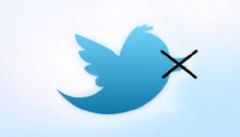Human Rights Voices
While the UN devotes its human rights operations to the demonization of the democratic state of Israel above all others and condemns the United States more often than the vast majority of non-democracies around the world, the voices of real victims around the world must be heard.
Pakistan, May 22, 2012
Twitchy About Twitter
Original source
LONDON - The Pakistan Telecommunications Authority (P.T.A.) banned Twitter across the country for eight hours on Sunday, sparking both outrage and derision among many Pakistanis, myself included. Twitter, which has over six million account holders in Pakistan and started an Urdu-language version of its home page in March, is one of the country's most popular social networking sites.
According to Pakistan's Ministry for Information and Technology, the ban was implemented after Twitter failed to respond to an official complaint against supposedly blasphemous tweets about a competition on Facebook involving caricatures of the Prophet Muhammad. Yet the ministry didn't explain why it lifted the ban a few hours later even though Twitter hadn't removed the offending content. In the meantime, most net-savvy twitterati were able to circumvent the ban by using proxy servers.
#TwitterBan was trending in Pakistan for most of the day, with many people decrying the inanity of the P.T.A.'s move. The Karachi-based music reporter Madeeha Syed tweeted, "We accessed blogs during blogger ban, Facebook during Facebook ban, YouTube during YouTube ban ... What makes this #TwitterBan so special?" Café Pyala, an anonymous media-watch blog, claimed that the government's request that Twitter block specific "blasphemous" tweets betrayed the ignorance of the country's IT officials.
Still, the Twitter ban is no laughing matter: it's the latest sign that Pakistan's civilian government is able to clamp down on free speech. In February, Pakistan invited bids for an Internet filtering system that could block up to 50 million URLs (the idea was shelved following a backlash from civil society). Last year, the P.T.A. attempted to ban 1,500 "immoral" terms from use in cellphone text messages. In 2010, a Pakistani court banned Facebook and other social network sites for two weeks on the grounds that they were hosting blasphemous content. A few years earlier, the Pakistani government made YouTube crash worldwide after trying to block the site for streaming the infamous Danish cartoons of Muhammad.
The government claims to be censoring only blasphemous content, but it is notable that social networking sites are among the few remaining venues in Pakistan for unfettered political debate.
The IT ministry has blocked dozens of Web sites that champion the cause of separatists in Pakistan's western Balochistan province, where human rights abuses by the security establishment are rampant. Last year, Rolling Stone magazine was blocked online after publishing an article about the Pakistani Army's expenditures.
Many bloggers and free speech activists in Pakistan believe that the Twitter ban was a "test run" by the IT ministry - a chance to flex its censorship muscles. With the experiment occurring months ahead of the next expected general election, Pakistanis should take any violation of their right to free speech seriously. The next ban may not be as short-lived as this one.

